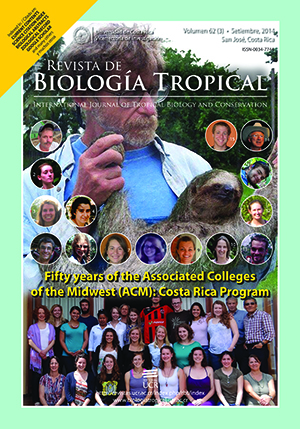Abstract
Dengue fever is the fastest spreading, most prevalent and deadly arthropod-borne viral disease worldwide, present in over 125 countries. In 2013, Costa Rica is experiencing the highest number of Dengue infections since the virus’s reintroduction to the country in 1993. This study evaluated the Dengue-related knowledge of 320 community members, and polled opinions on how to better educate and mobilize the community on Dengue prevention in Quebrada Ganado, Costa Rica during March-May, 2013. In addition, property inspections were used to find relationships between knowledge or opinions and presence of Aedes breeding sites. Results showed that while citizens knew the virus is transmitted by mosquitoes that reproduce near water, they lacked knowledge on Aedes habits and confused it with other mosquitoes. Eighty-one percent of respondents assumed some responsibility for dengue prevention. Suggestions for improved education included consistent and continual information on the risks and dangers dengue poses to an individual. Characteristics relating to households with more positive breeding sites were: lower education level, higher prevalence of dengue infections in the household, lesser knowledge of dengue symptoms, a lower rating on the dangers of dengue and a lower rating on the importance of preventative actions. While a range of prevention methods are implemented, active community involvement is highly important for successful Dengue prevention. Continual evaluation is necessary to make more immediate, long-term behavioral societal changes, and to maximize the economic resources spent on Dengue prevention.
Victoria L. Egedus1,2, José Morales Ortega3 & Anabelle Alfaro Obando4
1Associated Colleges of the Midwest, San Pedro, Costa Rica
2Lake Forest College, Lake Forest, IL 60045 USA; egeduvl@mx.lakeforest.edu
3Ministerio de Salud, Área Rectora Garabito Jacó, Puntarenas, Costa Rica; rpc_garabito@ministeriodesalud.go.cr
4Universidad Nacional, Costa Rica; anabellealfaro@gmail.com
##plugins.facebook.comentarios##

This work is licensed under a Creative Commons Attribution 4.0 International License.
Copyright (c) 2014 Revista de Biología Tropical






